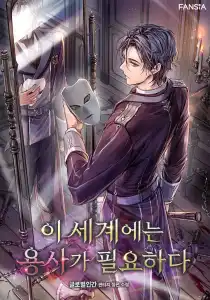Chapter 23: The Experiment
A few days later, on a sunny morning, Joseph once again donned his formal attire, while Napoleon wore his military uniform. They boarded a light two-wheeled carriage bound for the Bertonne Castle on the outskirts of Paris, where they were set to participate in an experiment to measure the speed of light.
The Bertonne Castle was an estate belonging to the House of Orlans, perched atop a small hill. It was originally a military fortress built in the 12th century but had lost its military significance over time. Its defensive modifications had made it ill-suited for habitation, and it now lay in a semi-abandoned state. However, for conducting experiments, the location was ideal. It was far from the city, with few nearby residents, and virtually no light pollution. From the high castle tower, they could clearly observe the reflected light from mirrors set about four or five miles away.
Given the remoteness of the location, and the absence of public transport, Joseph had rented a light two-wheeled carriage to reach the castle.
The journey in the light carriage took most of the morning, and it was around three in the afternoon when they arrived near Bertonne Castle. There was an estate of the House of Orlans below the castle, where the participants of the experiment gathered. The carriage came to a halt at the estate's gate, and a servant approached to inquire about their identities. Joseph identified himself, and shortly after, the ornate iron gates of the estate swung open. They entered the estate, and the carriage came to a stop in front of a grand, Baroque-style mansion. A wig-wearing steward guided them inside.
The steward led them through a grand hall and into a small garden at the rear of the mansion. In the garden, there was a modest glass greenhouse. While such structures might not be extraordinary in the future, during this era, it was a luxury beyond the reach of most. Several people were inside the greenhouse, sipping tea and admiring the blooming roses. Joseph noticed Ampre, Laplace, Biot, and Monge among them. However, the host, Duke Charles, was conspicuously absent.
"Ah, Joseph, come over here," Biot waved when he spotted Joseph. He approached and greeted each of them one by one. He expressed his gratitude to Monge and Laplace for their recommendation. Napoleon, whom Joseph introduced as his brother, was also acknowledged.
Joseph inquired about the absence of the Duke, and Biot explained that he had been summoned by the King. The Duke's butler, Mr. Will, was left to assist them with the preparations, and everything was in order, awaiting the night's experiment.
In the past few days, the Academy of Sciences had worked in collaboration with the House of Orlans to precisely measure the straight-line distance from the Bertonne Castle's watchtower to the mountaintops of two nearby, unnamed hills. To ensure a clear line of sight, they had even cleared the trees from those mountaintops - they were, after all, part of the Orleans' estate.
Now, everything was ready, and they only awaited nightfall. They engaged in scientific discussions as they had nothing else to do. Laplace and Monge delved into the gravitational potential function for any mass point outside a celestial body. Napoleon, though interested, listened more than he participated, in contrast to Joseph's active engagement.
Soon, the Orleans family's staff invited everyone for a meal. It was a working dinner, modest by Orleans' standards, but Joseph and Napoleon experienced several culinary novelties, including truffle slices sandwiched in goose liver paste and various other delicacies.
Napoleon also couldn't resist a teasing smile, and Joseph knew what he was thinking: "My dear, slow brother, you've become the subject of some gentle mockery."
Joseph defended himself, "These calculations are far more complex than my previous life, where we could solve them with a single keystroke. My speed is already quite impressive, and if anyone else were to attempt this, they might not even complete half as much as I did."
The room burst into laughter, and Joseph continued, "My calculations might not be fast, but they're thorough, and I'm meticulous. I can't help it."
In the midst of the laughter, Joseph completed his calculations. The three of them cross-checked their results and found them to be nearly identical. Joseph quietly converted the figure into kilometers, and they realized that their measured speed of light was remarkably close to the modern-day value.
"How astonishingly fast!" Laplace murmured. "If light is indeed a wave, one wonders about the unique properties of this 'aether.' It's truly beyond imagination. However, if light is composed of particles, how would one explain phenomena like the double-slit interference and Poisson's bright spot?"
Napoleon, leaning forward with a glint of curiosity in his eyes, chimed in, "What if we consider a more radical idea? What if the medium through which light propagates isn't some conventional substance but the fabric of space itself?"
"Space itself? Light as a wave in the fabric of space?" Ampre responded. "Ah, Napoleon, you possess a philosophical imagination. But as a scientific hypothesis, it lacks substantial evidence. Science demands evidence, just like your brother's hypothesis it's supported by a mathematical model. However, this notion, intriguing as it is, has no practical method for study since we lack any tools to probe the fabric of space."
Joseph, quite startled by Napoleon's statement, knew that light wasn't a wave in the fabric of space. While space itself could exhibit wave-like properties, these waves weren't light but gravitational waves.
"He's quite imaginative. With proper nurturing, can we cultivate him into a physics emperor?" Joseph mused, while Napoleon's eyes sparkled with curiosity and a touch of mischief.
Unlock exclusive early access to more than 200 chapters before anyone else by becoming a valued member of my Patreon community.







